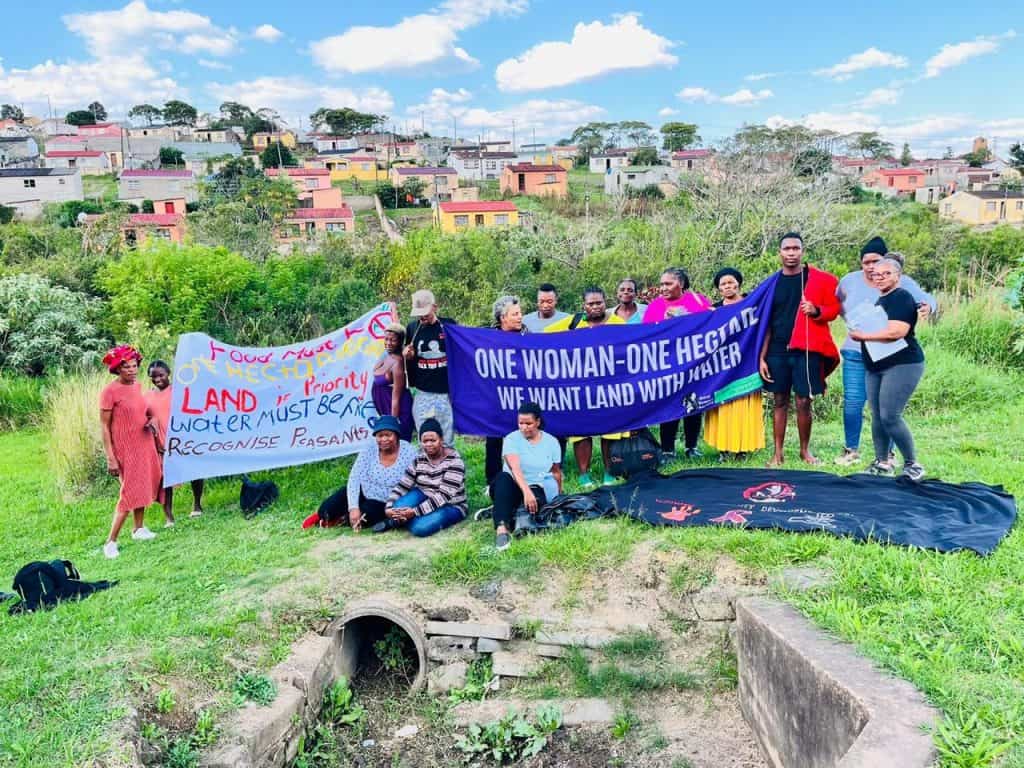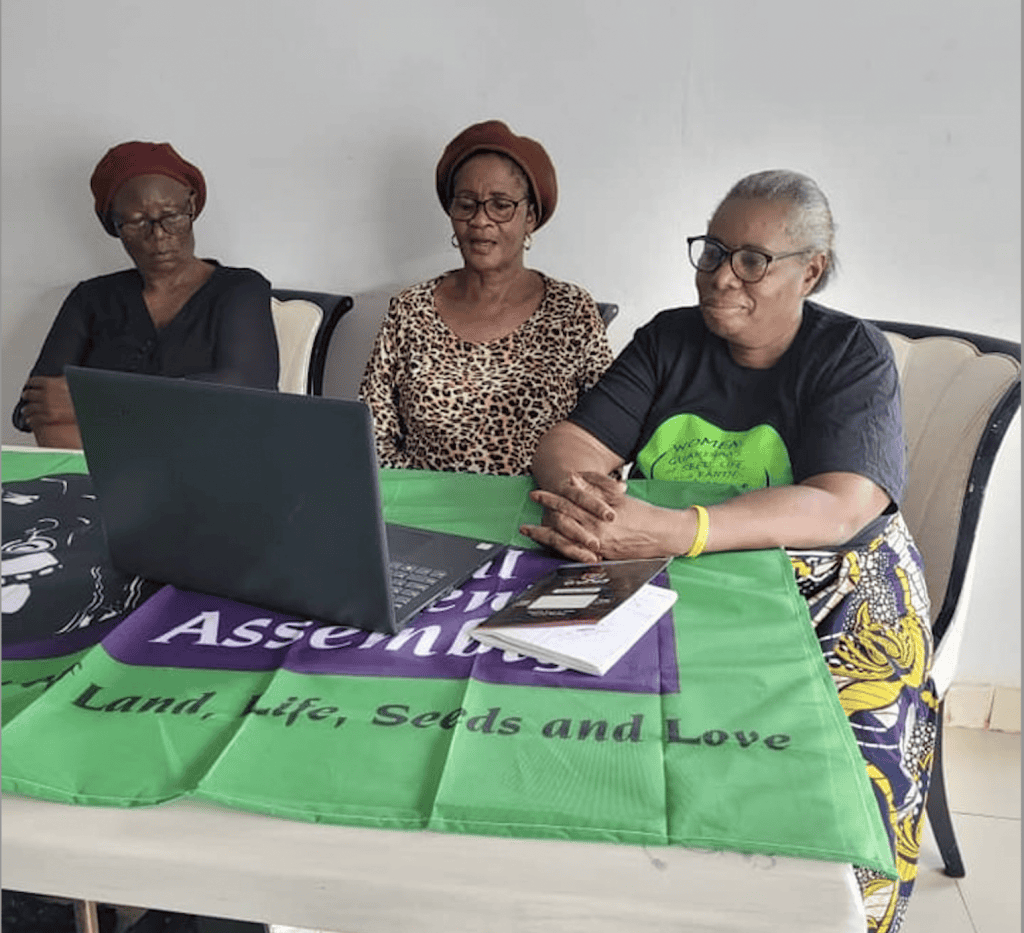Union Aid Abroad-APHEDA supports the Trust for Community Outreach and Education (TCOE) in South Africa, which builds capacity for the Farm Workers’ Union, small farmer associations, the Inyanda Land Rights, and the Rural Women’s Assembly which is building resilience among rural women to confront the climate change impact to their livelihoods.

The impact of climate change in rural South Africa
South Africa is not exempt from the challenges posed by climate change. In recent years, the country has witnessed a shift in weather patterns, leading to adverse effects on its environment. Among the communities most affected by these changes are rural populations, where the effects of climate change are felt acutely. The Rural Women’s Assembly (RWA) of South Africa has emerged as a key player in educating and empowering these communities to navigate the growing crisis.
Recognizing the urgency of the situation, the Rural Women’s Assembly has been proactive in addressing the implications of climate change, particularly for women and small-scale farmers. These efforts are crucial, given that a significant portion of South Africans—about 70%—attribute climate change to pollution, improper waste disposal, and deforestation. The government has responded by introducing a climate change crisis bill in 2022, which was shaped with public input and passed in October 2023. However, the real test lies in how effectively these policies are implemented on the ground.
The RWA has focused on raising awareness and building resilience among rural women, who often bear the brunt of climate-related disasters. The catastrophic floods that struck the Eastern Cape in June 2024 underscored the vulnerability of these communities. Over two weeks, heavy rainfall led to widespread devastation, with families losing their homes, essential resources, and, tragically, ten lives. The Rural Women’s Assembly played a vital role in providing emotional support to affected families, particularly small-scale farmers who saw their livelihoods washed away.
The impact of climate change is not confined to the Eastern Cape. The Western Cape and KwaZulu Natal have also experienced severe weather events, including tornadoes, veld fires, and prolonged flooding. In the Western Cape alone, over 160,000 people were directly impacted by storms, with lives lost and properties destroyed. The RWA has been at the forefront of efforts to help these communities recover, emphasizing the importance of sustainable practices like agroecology to mitigate future risks.
Agroecology and land rights, strategies to fight the climate crisis
Agroecology has been a central theme in the RWA’s initiatives, particularly in regions like the Free State and Northern Cape. In the Free State, the RWA hosted a climate change workshop where women learned about energy poverty and sustainable solutions like the “Wonder Bag,” a cost-effective method for retaining food warmth. The workshop not only provided practical skills but also opened avenues for income generation, helping women improve their livelihoods.
In the Northern Cape, known for its harsh climate and water scarcity, the RWA organised a comprehensive workshop on agroecology. The focus was on the concept of “One Woman, One Hectare,” supporting women to manage small plots of land sustainably. The initiative, which attracted over 30 participants, highlighted the critical role of agroecology in ensuring food security and combating poverty. These workshops also provided a platform for discussing broader issues, such as the importance of gender-sensitive policies in climate change mitigation.
The Rural Women’s Assembly has also been active in advocating for land rights, particularly in regions like the Eastern Cape, where women face significant barriers to land ownership. A workshop held in Libode educated over 30 women on their rights under the United Nations Declaration on the Rights of Peasants. This knowledge is crucial for empowering women to secure land for agricultural purposes, a vital resource in the fight against food insecurity.
In addition to these localized efforts, the RWA has continued to push for broader policy changes. The organisation is urging the South African government to act on its commitments made at the COP28 conference, particularly regarding funding for climate change mitigation. The RWA emphasizes that the most vulnerable communities cannot afford to wait for action, as the effects of climate change are already threatening their livelihoods.
The work of the Rural Women’s Assembly shows the power of grassroots movements in addressing global challenges. By focusing on education, power building, and advocacy, the RWA is helping rural women in South Africa navigate the complexities of climate change. Their efforts not only build resilience within communities but also highlight the critical need for inclusive, gender-sensitive approaches to climate policy.

Rural Women’s Assembly holding a climate crisis solidarity webinar.
—
Article based on the report written by Asanda Magadla
29 August, 2024.
